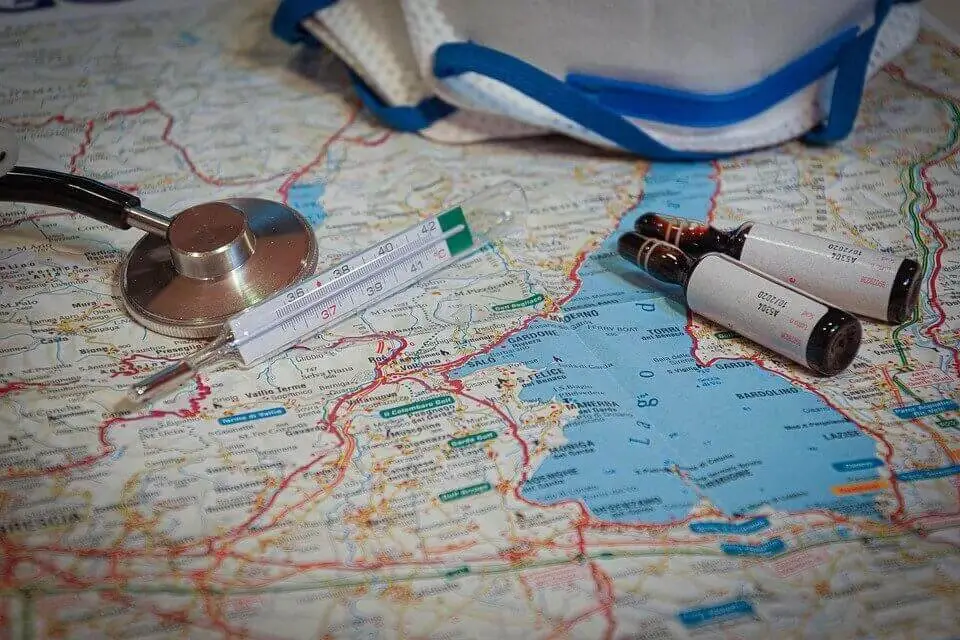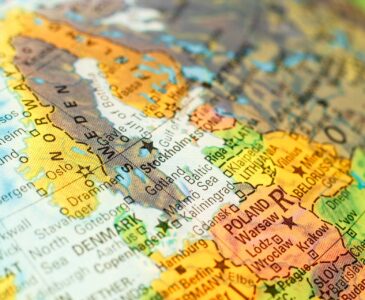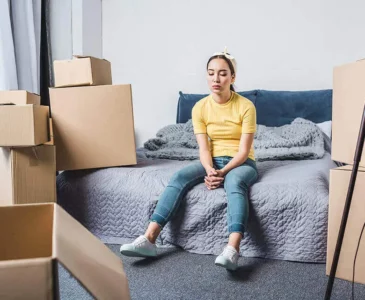Have you just moved somewhere abroad? Or you’ve been living in another country, on another continent for a while now? Either way, living as an expat during the coronavirus outbreak can be rather challenging. Along with the virus itself, fear and anxiety are spreading just as fast, if not even more rapidly. So, what do you need to know about the coronavirus outbreak, and how are you supposed to cope with it as an expat, somewhere far away from home?
No matter how attached you are to your home country, sooner or later, you start to feel somewhat homesick. Normally, homesickness shouldn’t be much of a problem. You just need to book the first flight to the US and you already feel better. With the upcoming Easter holidays, you probably planned to do so, and you were already looking forward to it. But then, in just a couple of weeks, the outbreak of COVID-19 changed your usual routine and plans, affecting every aspect of your life.

What to Do?
With the rising chaos and spread of misinformation all over the Internet, you probably feel overwhelmed and confused, not knowing whom to trust and what the best thing to do really is. One of the many things you’re wondering is whether you should hurry up and go or even move back home while you still can if there is such a possibility.
The truth is, even if you are traveling from a country not severely affected by COVID-19, the best thing you can do for your family, community, and yourself is to stay put. Even if you were with your friends and family just a week ago, during this time, you’d miss them. You’ll want to spend this time with your loved ones, in your home country. But it is crucial to remember that the best way to help them is, in fact, not to see them right now.
Join Online Expat Communities
When you accept that it is best not to leave the city, let alone the country you live in right now, the following dilemma arises: what to do then? How to cope with a crisis on your own? Living as an expat comes with a wide range of hurdles. International moving services were helpful when it came to the relocation itself. But the rest of it is quite a bit of a challenge.
Most people who’ve been through international relocation will probably point you to expat communities. However, considering that any close contact with others is forbidden or at least not recommended right now, depending on where you are, expat communities don’t mean much to you at the moment. Well, at least not those organizing activities that require physical contact. During the time when self-isolation is one of our strongest tools for fighting coronavirus, it’s much safer to look for online expat communities.

Expats in Asia
If you had decided to relocate to China, luckily, the worst part is already behind you. Although the first and the most severely affected country in the world, China has shown us that it is possible to overcome the pandemic. Nonetheless, there are strict regulations for all travelers coming from this country. So, if, for any reason, you have to go to the US now, you should know that travelers from China and Iran arriving in the United States have to go through a particularly careful screening process.

Expats in Europe
Those of you who had decided that moving to Europe was the right way to go should brace yourselves for what’s following. Namely, according to the World Health Organization, Europe is now the active center of COVID-19, with the most severe outbreaks currently taking place in Spain and Italy. Whatever country you live in, it is essential not to leave it, avoid any contact with other people, and take other precautionary measures to protect yourself and everyone around you.

Stay Safe
While there’s no room for panic, you do need to take any measures necessary to stay healthy during the coronavirus outbreak. You need to know that coronavirus spreads rather easily, primarily from person to person. The most important steps to take during the coronavirus pandemic include the following:
- Wash your hands as frequently as possible
- Do not touch your face
- Disinfect all frequently touched objects and surfaces
- Stay home even if you’re not sick – you may be infected without showing any symptoms, which is why traveling is not an option
- If you notice any symptoms, seek medical care as soon as possible
- Wear a mask if you’re sick or caring for someone who is

Make Use of Technology
Being away from your friends and family makes this difficult time even worse for you. But, you shouldn’t despair. You can make use of technology and schedule regular Skype calls with your loved ones. Use all the free time you have in isolation the best you can – read books, watch movies you usually don’t have time for and get enough rest. You can also exercise at home or do yoga to help you with stress and anxiety. Don’t forget that the best way to help others is by staying healthy. We all need to do our part in stopping coronavirus from further spreading.
Keep in mind that our own sense of responsibility is of crucial importance to win this fight. For more details about COVID-19, how to protect yourself, how to spot the first symptoms, what to do if you are sick, and many other questions, visit the official website of the Centers for Disease Control and Prevention. Stay calm and be safe.














